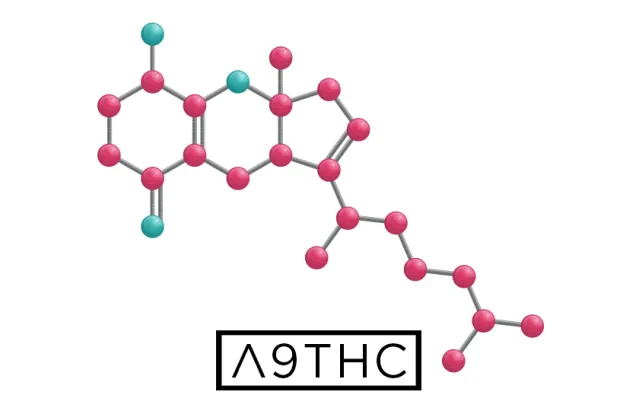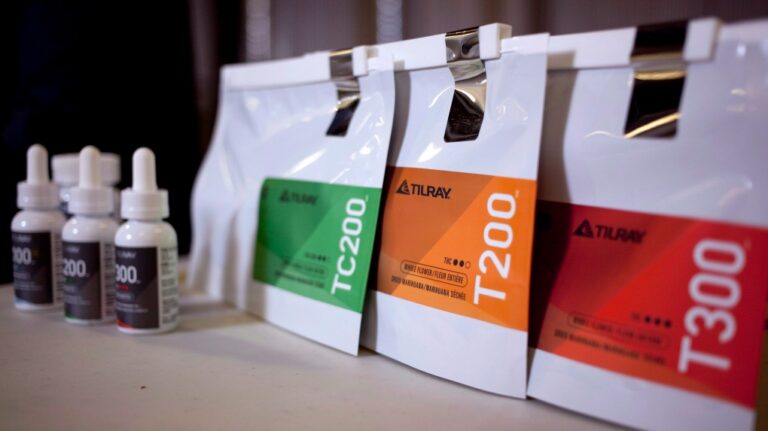If you’re a member of the 420 community and are familiar with cannabis use, you may be pondering what you still don’t know about Delta-9-tetrahydrocannabinol, the most common and highly sought-after cannabinoid. There is a drive for Delta 9 THC extracted from the hemp cannabis plant because hemp-derived Delta THC has changed the game. It is true that you can buy Delta 9 for medicinal or recreational purposes online without having to visit a dispensary, and it will give you a high that is very similar. The same holds true for other trace amounts of cannabis, such as Delta 8 THC, Delta 10, HHC, and THC-O. We will address the general issue of what is Delta 9 and go over its chemical makeup in this guide.
So, What is?
Tetrahydrocannabinol (THC), also referred to as Delta-9-tetrahydrocannabinol (Delta 9 THC), is the primary psychoactive substance present in cannabis plants. It is one of the most common naturally occurring cannabinoids and is in charge of producing the well-known and adored “high” that comes with marijuana use. Cannabinoids are a class of complex organic substances that each cannabis plant naturally produces to deter predators. Delta 9 is just one of potentially hundreds of cannabinoids. Understanding the fundamentals of cannabinoids and how they affect the body and brain is crucial when addressing the issue, “What is Delta 9? exactly”

Delta 9 (THC) and cannabidiol (CBD) are two of the most common, the most well-known among cannabis users, and the most studied of the group despite the fact that most cannabinoids are produced in extremely trace quantities, making it very difficult to study them. The only naturally occurring cannabinoid that has psychoactive affects and makes users high is Delta-9-tetrahydrocannabinol. It is now possible to extract minor cannabinoids or produce synthetic cannabinoids like Delta 8 THC, Delta 10, HHC, and THC O that have similar effects thanks to advances in the area. Depending on the method of production, each of these can be either natural or manufactured cannabinoids.
Delta-9-tetrahydrocannabinol has a molecular weight of 314.46 g/mol and the chemical formula C21H30O2, according to more precise measurements. This cannabinoid is a yellow, resinous material that sticks to things and is soluble in organic solvents like ethanol, which is occasionally used for extraction. It is insoluble in water. The center cyclohexene ring of delta 9 THC is fused to a hydroxyl group (-OH) and a linear alkyl chain, defining its chemical structure. The term “Delta 9 THC” comes from the double bond and methyl group (-CH3) at the third carbon atom in the alkyl chain.
Is Delta 9 THC made from Hemp?
You might be asking how Delta 9 THC is made from hemp if Delta 9 THC is the standard THC that everyone consumes. Due to shifts in the legal environment, hemp-derived cannabis products are becoming more popular throughout the United States. Some businesses are switching to nationally legal hemp in order to avoid the rules, rather than selling cannabis products like dry herb made from marijuana, which is considered illegal by the federal government but permitted for recreational or medicinal use in some states. Natural Delta 9 THC levels in hemp plants are minimal, so many producers end up extracting CBD and converting it into THC using the chemical process known as isomerization, which changes the molecular structure and enables them to achieve higher potency levels. InfiniteCAL Labs studied 53 well-known brands and discovered that the majority (64%) obtained Delta 9 through the isomerization process, 19% added THC from cannabis to enhance potency, and only 17% actually extracted their THC from natural hemp material. This means that despite being produced using lawful hemp, the majority of Delta 9 THC on the market is synthetic and non-natural.
Is it legal?
Here comes the crucial query. How lawful is delta-9 THC if it comes from hemp plants that are permitted by the federal government? The Farm Bill (officially known as H.R.2 – Agriculture Improvement Act of 2018), which legalized industrial hemp farming on a federal basis, was signed into law by former President Donald Trump in 2018. Since hemp contains high amounts of CBD, which is now legal to sell online or at smoke shops, the production of CBD has skyrocketed. As a result of the new bill’s legalization of all hemp products having less than 0.3% THC (the definition of THC was not made clear), minor cannabinoids like Delta 8, THC-O, and Delta 9 were produced. In places where marijuana use for either recreational or medical purposes is still illegal, these additional cannabinoids are in high demand. The U.S. Drug Enforcement Agency still classifies marijuana as a Schedule I substance, but these hemp-derived minor cannabinoid goods continue to exist in a legal limbo.
Since hemp-derived Delta-9-tetrahydrocannabinol is theoretically legal at the federal level, several states have already enacted restrictions or outright bans on the sale of hemp-derived Delta-9-tetrahydrocannabinol products. Surprisingly, just because marijuana is lawful in a state for either recreational or medical purposes does not imply that synthetic cannabinoids or cannabinoids derived from hemp are also permitted. When purchasing cannabis products online, keep this in mind and always verify local and state laws as they are subject to change.
Does Delta 9 THC make you high?
Yes, Delta 8 THC will make you feel high. When marijuana enthusiasts speak about getting “blazed,” they are referring to Delta 9 tetrahydrocannabinol. For a long time, cultivators and breeders concentrated primarily on obtaining flower with the highest levels of THC. Because of this, dry herb is much stronger than it was in the past, with high THC strains testing at 35% and the typical variety from your neighborhood dispensary testing at 15% to 25%. When it comes to strength, hemp-derived Delta 9 is still more potent than the majority of other cannabinoids, including Delta 8 THC and Delta 10.
Effects of Delta 9 THC
The broad range of mental and physical effects of Delta-9-tetrahydrocannabinol rely on the dosage, method of ingestion, potency, and individual tolerance. The substance affects the endocannabinoid system, a sophisticated network of receptors and neurotransmitters that is a component of the central nervous system and is involved in controlling a wide range of physiological processes including mood, appetite, pain, and inflammation. Consuming delta-9-THC causes a range of effects by attaching to the CB1 and CB2 receptors in the body and brain.
What is Delta 9 THC vs Delta 8 THC vs Delta 10 THC?
Although you might believe that you are an expert on cannabis and cannabis use, new developments are constantly taking place. Delta 8 THC and Delta 10 are two of the most well-known cannabinoids in the hemp industry, but if you reside in a state where it is legal, you might never have even heard of them. The potency degree, in essence, is what separates the three. Stick with Delta 9 THC if you’re an experienced smoker and prefer a strong variety. Even the type made from hemp has more strength than the others. The potency of Delta 8 THC is lower than that of Delta 9, and Delta 10 THC is the least potent of the group. But before you write off the weaker cannabis, consider them.

Many 420 fans prefer weaker cannabinoids because there is less chance for a negative experience to occur, especially if they are sensitive or have previously experienced some of THC’s side effects, such as paranoia or anxiety. All three of these cannabinoids share many characteristics but differ slightly in their molecular structures and the way they affect the body and psyche. Because Delta 8 THC and Delta 10 are only very weakly present in cannabis plants naturally, they are almost never produced in laboratories for industrial use. When it comes to study studies, Delta 9 (though not Delta 9 derived from hemp) is much more prevalent than Delta 8 THC and Delta 10, which are still relatively common.





